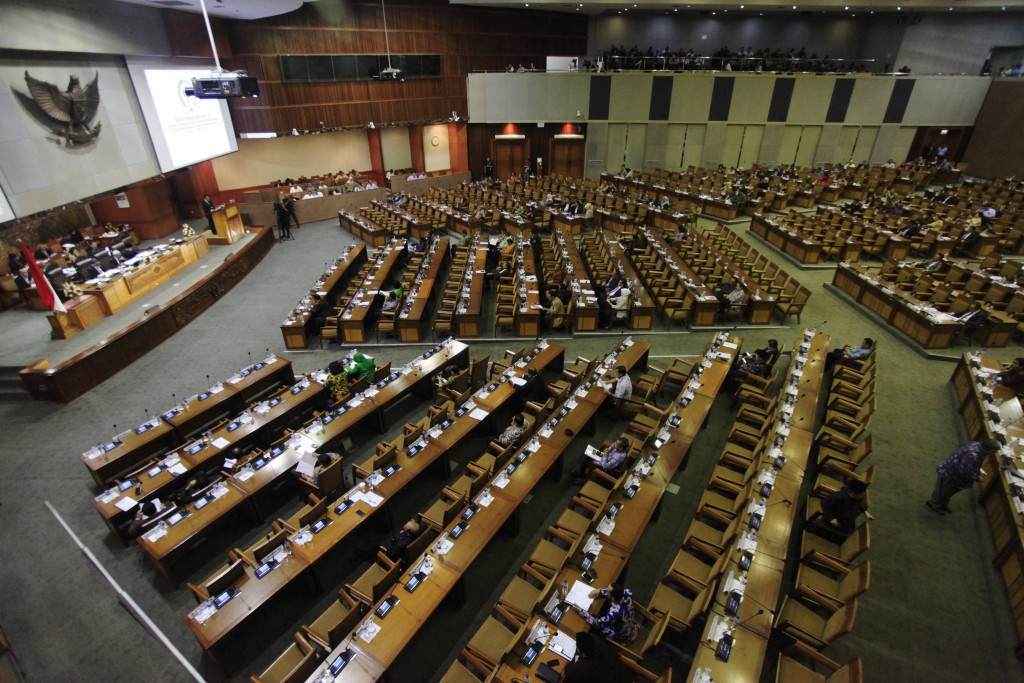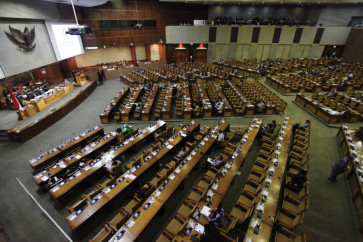Popular Reads
Top Results
Can't find what you're looking for?
View all search resultsPopular Reads
Top Results
Can't find what you're looking for?
View all search resultsAnalysis: House to pass key draft laws as succession looms
Change text size
Gift Premium Articles
to Anyone
T
he House of Representatives plans to accelerate the law-making process of several controversial bills during the lame-duck period before its term ends on Oct. 1. The politicians are intent on revising specifically the Broadcasting Law, the Constitutional Court Law, State Ministries Law and Indonesian Military (TNI) Law that would help them consolidate their power, unfortunately at the expense of democracy, before the Oct. 20 succession of administration.
The new draft broadcasting bill, if passed, will prohibit investigative journalism and transfer the Press Council’s authority to settle journalistic disputes to the Indonesian Broadcasting Commission. In general, the lawmakers in the House’s Commission I, overseeing broadcasting, media and information affairs, are poised to regulate the broadcasting contents after the multiplexing and analog switch-off issues were solved in the Job Creation Law.
Unsurprisingly, the draft revision of the Broadcasting Law has been met with opposition from civil society groups. The Press Council, for example, rejects the planned amendments since the new law could go against the Press Law and justify excessive censorship in over-the-top (OTT) broadcasting platforms.
The potential revision of the Broadcasting Law is also deemed as strengthening the state’s authority to act against broadcasting platforms, business actors, the press and even civilian content creators. In other words, the new law puts freedom of speech at stake. A number of Commission I members involved in the revision have played down the worries, saying the draft is subject to change and its passage will not happen anytime soon. However, the chairman of the Commission I working group on the revision is optimistic the revision could be concluded before the current House ends its five-year tenure.
The House also plans to revise the Constitutional Court Law, even without the involvement of Law and Human Rights Minister Yasonna Laoly, who is also an Indonesian Democratic Party of Struggle (PDI-P) politician. Deliberation of the draft revision could go ahead with the approval of Coordinating Political, Legal and Security Affairs Minister Hadi Tjahtjanto, a close confidant of President Joko “Jokowi” Widodo, as representation of the government.
Not only has the revision sparked protests due to a lack of transparency in its deliberation, but its process was controversial from the beginning. When initiated in 2023, then Coordinating Political, Legal and Security Affairs Minister Mahfud MD, who is a former Constitutional Court justice, rejected it, saying the draft revision might interfere with justices’ independence.
The House also initiated revision of the State Ministry Law by changing a provision that limits the number of ministries to 34. The new law leaves the number of ministerial seats to the president to decide. House Deputy Speaker Sufmi Dasco Ahmad of the Gerindra Party said it will take a short time to conclude the revision, so that the incoming president, Prabowo Subianto, can properly develop his cabinet.



















